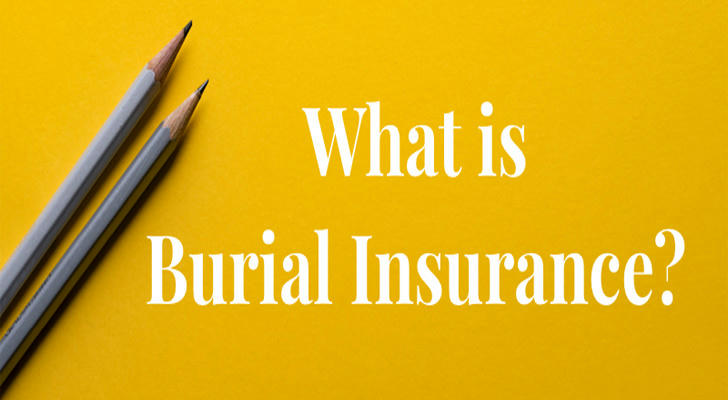Funeral Insurance: Planning for the Unexpected and Protecting Your Loved Ones
Let’s face it—death is tough to talk about. But avoiding the conversation won’t make it disappear. Funerals can be emotionally exhausting and, for many families, financially overwhelming. Funeral insurance, also called final expense insurance, can be the safety net your loved ones need. In this article, we’ll break down common misconceptions, real-life examples, and tips for choosing the right policy—without overloading you with jargon.

I.“I Don’t Need Funeral Insurance Yet!” Timing Is Everything
Many people think funeral insurance is only for seniors. But life is unpredictable, and waiting too long could leave your family in a financial bind.
James, a healthy 42-year-old business owner, didn’t think he needed funeral insurance. Sadly, he passed away in a car accident. His family faced a $12,000 funeral bill, wiping out their emergency savings.
On the other hand, Emily, a 35-year-old teacher, bought a simple funeral insurance plan for $25 a month. When she passed unexpectedly, her policy covered all her funeral costs, sparing her family financial stress.
Key Takeaway: The earlier you purchase funeral insurance, the cheaper the premiums. Planning ahead means your loved ones won’t be burdened with unexpected costs.
II.“Funerals Aren’t That Expensive, Are They?” Spoiler: They Are
Funeral costs have skyrocketed in recent years. According to the National Funeral Directors Association (NFDA), a traditional funeral with burial averages $9,000, while a cremation service costs around $6,000. Extras like flowers, obituaries, and receptions can push these numbers even higher.
Cost Breakdown:
1.Casket: $2,500+
2.Burial Plot: $1,000–$4,000
3.Funeral Home Fees: $3,000–$5,000
4.Miscellaneous Costs: $1,000+
Maria, a single mom, passed away unexpectedly. Her two adult children were shocked by the $11,000 funeral bill. They had to take out loans to cover the costs.
If Maria had purchased a $15,000 funeral insurance policy, her children wouldn’t have had to worry about finances during such a difficult time.
Solution: Funeral insurance is designed to cover these high costs. For as little as $20–$50 a month, you can save your family from overwhelming debt.

III.“Can’t Life Insurance Cover This?” Why Funeral Insurance Stands Out
Many people assume life insurance will take care of funeral expenses, but life insurance payouts can take weeks—or even months. Funeral insurance, on the other hand, is designed for fast payouts to handle immediate needs.
Mark, a 58-year-old retiree, had a $200,000 life insurance policy. When he passed away, his family waited nearly two months for the payout. In the meantime, they used their savings to cover the $10,000 funeral bill.
Compare this with Linda, who had a $15,000 funeral insurance policy. Her family received the payout within 48 hours, allowing them to focus on the service without financial worry.
Key Difference: Funeral insurance provides quick, targeted coverage for end-of-life costs, ensuring your family has funds when they need them most.
IV.“How Do I Choose the Right Policy?” A Quick Guide
Choosing funeral insurance doesn’t have to be complicated. Follow these steps to find the right fit for your needs:
Step 1: Figure Out Your Budget
1.Decide how much coverage you need based on average funeral costs in your area.
2.Choose a monthly premium that won’t strain your finances.
Step 2: Research Providers
1.Look for insurers with good reputations and clear policies.
2.Check online reviews or talk to friends for recommendations.
Step 3: Understand the Terms
1.Waiting Periods: Some policies won’t pay out if death occurs within the first two years.
2.Guaranteed Acceptance: No medical exams required, but premiums might be higher.
3.Premium Lock: Ensure your premium won’t increase over time.
Step 4: Ask About Payout Speed
Choose a provider that guarantees payouts within 24–72 hours to avoid delays.
Lisa and Tom both purchased funeral insurance. Lisa chose a policy with no waiting period and locked premiums, ensuring reliable coverage. Tom, however, picked a cheaper plan with a two-year waiting period. When he passed away unexpectedly within that time frame, his family only received a partial payout.
Pro Tip: Look beyond price—focus on the overall value and reliability of the policy.

V.Why More People Are Choosing Funeral Insurance
The demand for funeral insurance is growing. According to the Insurance Information Institute (III), funeral insurance sales rose by 15% in 2023.
Why the Rise?
1.COVID-19: The pandemic made families more aware of the need to plan ahead.
2.Rising Costs: Inflation has made even basic funerals expensive.
3.Peace of Mind: Families want to ensure their loved ones are financially protected.

Conclusion: Funeral Insurance Is More Than a Policy—It’s a Gift
Thinking about your own mortality isn’t easy, but planning ahead is one of the most loving things you can do for your family. Funeral insurance ensures your loved ones can focus on celebrating your life—not worrying about bills.
By choosing the right policy early, you’re giving your family the ultimate gift: peace of mind.
